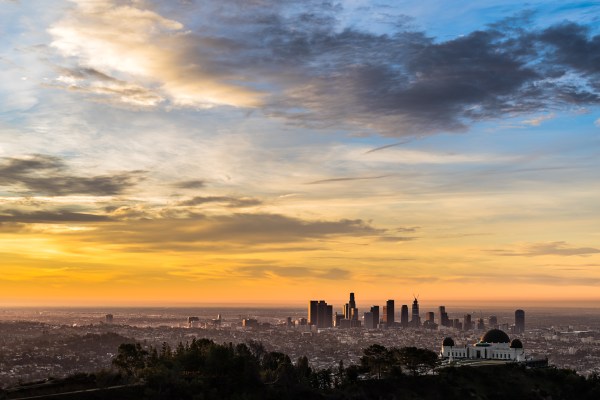It wasn’t so long ago that venture capital was a suburban California phenomenon. Los Angeles didn’t have much in terms of a real tech scene — and even the actual city of San Francisco only had a few venture capitalists or tech companies.
I remember the days when I would go to Silicon Valley and spend very little time in San Francisco itself. Now, satellite VC offices have sprung up in San Francisco, moving more of the investment energy up there. And that great migration of companies and activity from the Valley to the City touches upon what is now happening in Los Angeles — and why, as Randy Newman puts it, “I Love LA.”
These days (and I know it’s a truism), technology is in everything. And anything that is consumer related had better have a lot more going on than just a veneer of high-tech — or a digital sheen.
While innovation still rules, many consumer-driven technology companies begin with fairly off-the-shelf solutions. What makes these companies resonate with the consumer, what makes them unique, is their ability to create an individual brand and translate that brand into a great consumer experience. The best consumer businesses require creativity and a knack for understanding the user experience that hits a nerve just right.
As design, UX and UI evolved, and design aesthetics became a requirement rather than an afterthought, San Francisco began its ascent.
Consumer brands demand a consumer-driven focus and, therefore, better access to the type of creative community that exists in the City rather than the Valley. And so the Twitters and Ubers and (even) Salesforces found that San Francisco was the place to be to attract the right kind of people.
LA companies are actually tapping into cultural phenomena, trends and fundamental lifestyle changes.
But LA takes it one step further. And it goes beyond just great branding and consumer experiences. There is a real reason why Snapchat, The Honest Company and Tinder started in LA and why many more great “tech” companies will make LA their home. (It’s not just because rent is cheaper in SoCal.) It’s because something is happening. And it is something big. And that begins to explain why, as VC investment in Northern California slowed from 2014 to 2015, in LA it was up by more than 50 percent toward the end of 2015.
These LA companies are actually tapping into cultural phenomena, trends and fundamental lifestyle changes. And where better to start these companies than LA? They are deeply emblematic of the pulse of pop culture, and pop culture is the pulse of the world. In this, for better or worse, LA leads the way.
I don’t want to downplay the great technology that goes into companies like Snapchat and Tinder, but do you think it’s any coincidence that the behavioral patterns of consumers which these services elicit and foster began with LA’s finest? Or do you think that the marriage of a significant social movement with celebrity and branding that defines The Honest Company and its rise could have happened anywhere but LA?
The success of e-commerce in LA is further accentuated by the stunning $1 billion sale of Dollar Shave Club to Unilever, and it could be that the next great LA e-commerce business emerging is Thrive Market, which not only answers the question of what we should eat but how we should shop for that food. And of course, Tradesy gives the “have-nots” of the world a place to buy used high fashion from the “haves” of LA and beyond.
Changing channels, where better than LA to center the burgeoning e-sports world, which has its roots in an apartment in West Hollywood where the team behind Riot Games created League of Legends. Following quickly on its heels now is Mobcrush, a mobile Twitch of sorts, feeding off the energy of LA’s youth.
And these companies do not even begin to address the opportunities arising from the fundamental shifts now occurring in video and VR/AR, and why LA will dominate as those new media continue to evolve — as a reminder, Facebook bought SoCal-based Oculus! The next batch of LA-based VR companies are too numerous to mention, but certainly include Wevr and NextVR, the latter of which specializes in live event-based VR (especially sports).
Sure, most of the best technology will probably come from Silicon Valley (and now SF) for several more years to come. But I’m not so sure that the game changers in consumer experiences (or video) will. And as we see LA evolve and spin-offs spawn from LA’s best companies, we will likely see a lot more activity in the City of Angels.
Besides, as Randy notes, “Everybody’s very happy; ‘Cause the sun is shining all the time; Looks like another perfect day” in LA!
